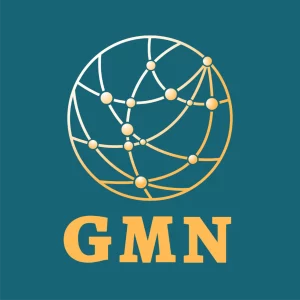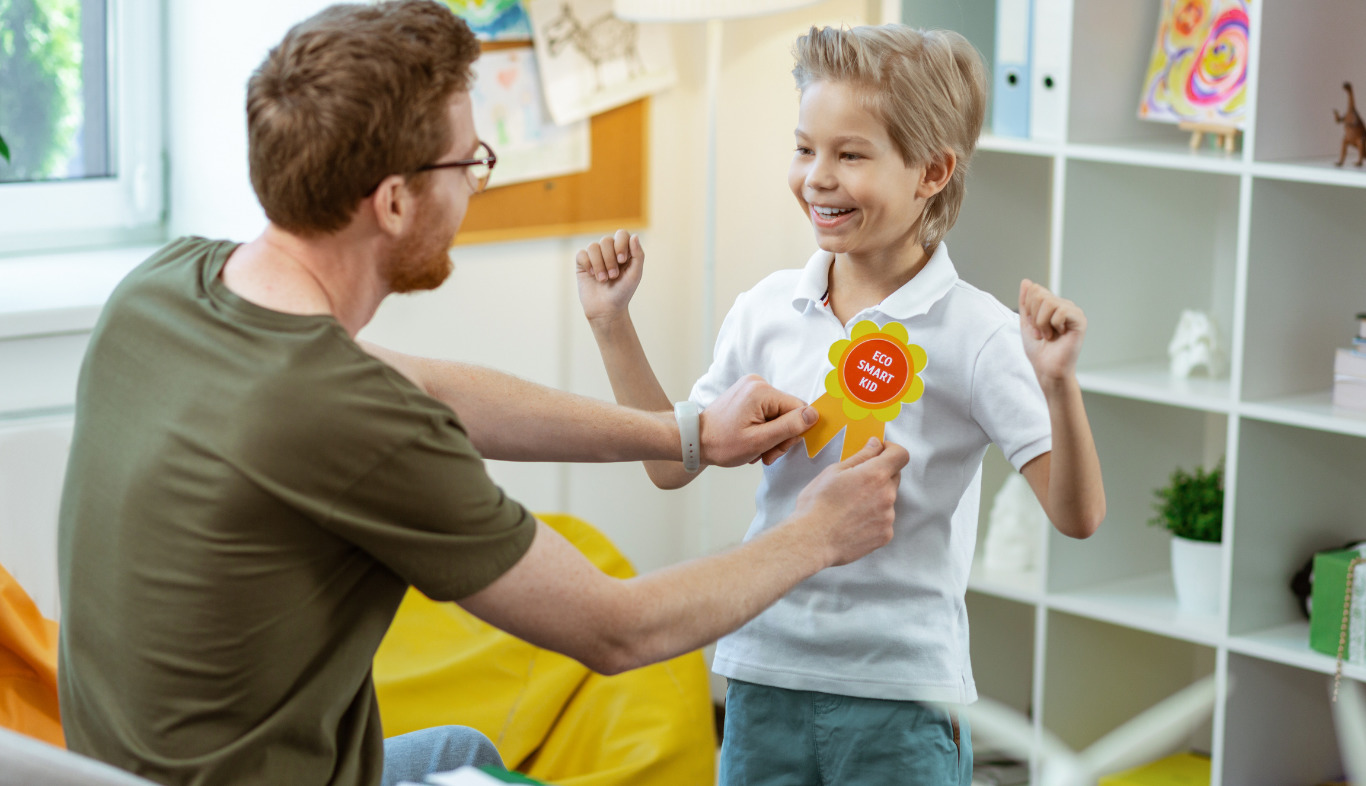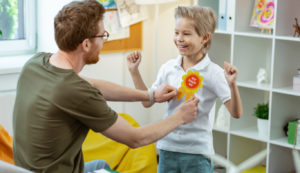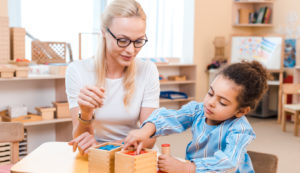Several pedagogical models of early childhood education are practiced in schools within the United States. Providing meaningful and hands-on learning experiences for all students has been a concern long before standardized assessments became the norm. Scholars have extensively researched on effective ways in which children learn, acquire, analyze, and process information.
The constructivist approach to early childhood education is one such philosophical approach, which includes pedagogical models such as Montessori, Waldorf (aka Steiner), and Reggio Emilia. These models emphasize and assess social and emotional skills through observation, as opposed to quantitative standardized tests. As indicated, the Montessori Method is one such example of a constructivist education model, and it has strong research-based evidence to support its effectiveness in academic achievement and overall well-being of children (Dhiksha & Suresh, 2016; Lillard, 2005, 2017; Lillard et al, 2021; Mallett & Schroeder, 2015; Marshall, 2017).
How does the Montessori Method help in the Academic Achievement and Well-being of Children?
More than 100 years of extensive research have demonstrated that the Montessori Method affords children better academic achievement and adult well-being as compared to other traditional or conventional models of education.
Through observation of children over her lifetime, Dr. Maria Montessori developed an understanding of child development and learning processes within children. Through these observations, she prepared an environment with development-based activities for children that promote independent learning. Such an environment not only stimulates the child’s natural development but also develops their problem-solving and critical-thinking abilities. One of the strengths of Montessori education is the child-centered approach in the classrooms. This allows children to learn by doing and become independent learners. This kind of methodology encourages children to master skills and achieve success.
A multitude of educational ideas is used by the Montessori Method, which also offers the foundation to put these ideas into practice. Numerous children have grown into successful, well-adjusted adults through a Montessori education.
Montessori Educational Opportunities and Outcomes
Standardized school assessments seek to quantitatively measure children’s academic achievement. The effectiveness and accuracy of these measures have been contentious and controversial since their inception. Conventional early childhood education programs are generally teacher-directed classrooms, where teachers are “on stage” presenting concepts and information for students to consume and acquire. The exams raised concerns about how to teach students who did not excel in them. However, there are still other methods of setting up the classroom that will allow all students to learn intuitively.
The Montessori method is one of those methods, where the curriculum delivers a quality program that involves the overall development of the child, be it social, emotional, cognitive, or kinaesthetic, and embraces the potential for significantly improving the academic outcomes.
The first longitudinal study of Montessori education outcomes led by Dr. Angeline Lillard et al., 2017 found that children in Montessori preschools demonstrate better academic performance and social understanding than children participating in a conventional method of education. Another study, conducted by Jane C. Manner (1999), mentions the Stanford Achievement Test whose findings indicates that Montessori students continued to produce higher mean scores in reading and mathematics than did the traditional education students.
Why Montessori Children’s Results are Better When Compared to Conventional Education Methods?
“Montessori education fosters social and academic skills that are equal or superior to those fostered by a pool of other types of schools.” as stated in research by Dr. Angeline Lillard.
The Montessori Method has taken a leap to prepare the blending of visual and auditory representations, which is crucial for successful reading. Significant progress has also been made in illuminating the brain mechanisms behind early reading and reading challenges.
To overcome these reading challenges, the Montessori Method of education introduces phonics. It is one of the well-researched and best foundational techniques of language development. Through phonics, it becomes easier for a child to understand and decipher the alphabet-sound code.
The use of phonics helps the children to read with the correct pronunciation of the letters, digraphs, blends, and phonemes. An article by Chloë Marshall states, “in the Montessori method, the letter-sound relationships are taught in an organized sequence, rather than being taught on an ad hoc as-and-when-needed basis (2017). The article also states that “the core of the Montessori curriculum is clear instruction of phonics within a rich language context, both spoken and written. The children are taught the sound-letter code before using it to encode words (in spelling) and decode them (in reading).
In addition to phonics and language acquisition, mathematics is also a strength of Montessori education. Montessori materials help children to understand math concepts in a more tangible manner. Developmental progression is used to ensure that math instructions are built on the learning capabilities of each individual child.
For instance, to introduce complex topics like combining and sorting of shapes, the child is first acquainted with Montessori sensorial materials like constructive triangles or geometric solids, or geometric cabinets. Activities with these resource materials help children recognize, name, and compare shapes effortlessly.
Similarly, to let the child comprehend mathematical concepts like addition and subtraction, materials like number rods, cards, counters, and spindle boxes are available in Montessori classrooms. Along with the sensorial materials, practical life activities like cutting fruits, folding clothes, and more such tasks are used in the Montessori classroom to introduce mathematical concepts like that of fractions.
The same thing is mentioned in research by Chloë Marshall. Marshall (2017) indicates that the use of practical life materials in Montessori classrooms to support the development of fine motor skills is a dynamic approach. The Montessori approach to reading using phonics, embedded in a rich language context, and giving math instruction a sensorial foundation are effective approaches to make a child enjoy learning which is not often present in conventional classrooms.
Mention of Academic Achievements of Montessori Children in a Research
The longitudinal study by Dr. Angeline S. Lillard and colleagues (Lillard et al., 2017) also states that an educational method that focuses on the overall development of the child rather than grades produces responsible, creative, and mature adults.
Across a range of abilities, children at Montessori schools outperformed the children in traditional education. Some of the differences that the team noticed through their research included:
- The children of Montessori schooling were significantly more creative and sophisticated.
- There was a significant difference with regard to the social and emotional behavior of the children of the same age groups.
- Children who attended Montessori schools demonstrated a sense of being reasonable, honest, and justified during interactions. They had a more emotionally positive approach.
- Montessori-educated children performed better in reading, spelling, grammar, and punctuation when compared to those who participated in conventional education.
Montessori education keeps children at the center of learning (student-centered learning). These unique points help Montessori students to perform well and demonstrate a mastery of various subject matters. To learn about Montessori education and how it differs from conventional education, please read our blog on this topic.
How does Montessori Education helps in the Socio-Emotional Wellbeing Of children?
We have so far explained the academic achievement of Montessori children and how it benefits the child’s development. It is interesting to know that the Montessori Method of education not only focuses on academics, but also on the social and emotional well-being of children.
The Montessori education model allows children to learn at their own pace. It focuses on educating the child as a whole. This gives children the freedom to gradually develop and master new skills and strengths, which in turn promotes personal independence, self-discipline, and better emotional stability. It also fosters interactions between the child with peers and the environment along with the development of democratic attitudes and values among people.
The children in the Montessori model perceived the positive impact of collaboration and group work, and this is found to be positively associated with heightened levels of self-efficacy and better emotional development as stated in a research by Dhiksha. J and Suresh A. The Montessori method of learning is based on experimental and exploring concepts. Self-correction and self-assessment are integral parts of the daily routine in Montessori classrooms. Hence, the students are open to criticism and corrections as they learn through errors. This teaches the children a lifelong practical lesson.
The research reveals that children who have high self-esteem, better social-emotional stability, and the capacity to interact well among people, are found to be more likable and attractive. They make better impressions on others.
In the Montessori Method, each child is considered unique and is given enough space to unleash the total potential of the child. It encourages independent learning, active exploration, and choice-making to enhance a child’s intellectual, physical, emotional, and social development.
Final Words
The Montessori Method of education is a pedagogical model that has been researched extensively and meticulously for more than a century. The above-mentioned evidence from rigorous studies regarding Montessori education is almost exclusively positive regarding the academic achievement of children. These studies have logically compared Montessori to other models of education.
These studies have also mentioned about the benefits of uninterrupted work periods in Montessori education that enhance the focus, attentiveness, discipline, and social and emotional skills in the children. Together, it provides better academic achievements and the well-being of children.
References
- Dhiksha, J., & Suresh, A. (2016). Self-esteem and academic anxiety of high school students with Montessori and traditional methods of education. Indian Journal of Health and Wellbeing, 7(5), 543–545.
- Lillard, A. S. (2005). Montessori: The science behind the genius (1st ed.). Oxford University Press.
- Lillard, A. S. (2017). Montessori: The science behind the genius (3rd ed.). Oxford University Press.
- Lillard, A. S., Heise, M. J., Richey, E. M., Tong, X., Hart, A., & Bray, P. M. (2017). Montessori preschool elevates and equalizes child outcomes: A longitudinal study. Frontiers in Psychology, 8, Article 1783. https://doi.org/10.3389/fpsyg.2017.01783
- Lillard, A. S., Meyer, M. J., Vasc, D., & Fukuda, E. (2021). An association between Montessori education in childhood and adult wellbeing. Frontiers in Psychology, 12, Article 721943. https://doi.org/10.3389/fpsyg.2021.721943
- Mallett, J. D., & Schroeder, J. L. (2015). Academic achievement outcomes: A comparison of Montessori and non-Montessori public elementary school students. Journal of Elementary Education, 25(1), 39-53. http://pu.edu.pk/images/journal/JEE/PDF-Files/3_v25_no1_15.pdf
- Manner, J. C. (1999). A Comparison of Academic Achievement of Montessori and Non-Montessori Students in a Public School Setting [Doctoral Dissertation (Ed.D.), Florida International University]. https://digitalcommons.fiu.edu/dissertations/AAI9946898/
- Marshall, C. (2017). Montessori education: a review of the evidence base. NPJ Science of Learning, 2(1), Article 11. https://doi.org/10.1038/s41539-017-0012-7
- Salazar, M. M. (2013). The impact of Montessori teaching on academic achievement of elementary school students in a central Texas school district: A causal-comparative inquiry [Doctoral dissertation, Texas A&M University]. http://hdl.handle.net/1969.6/515











